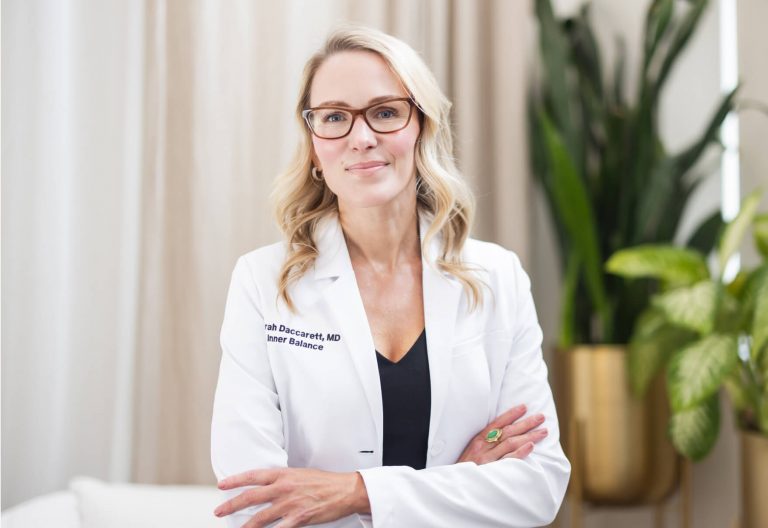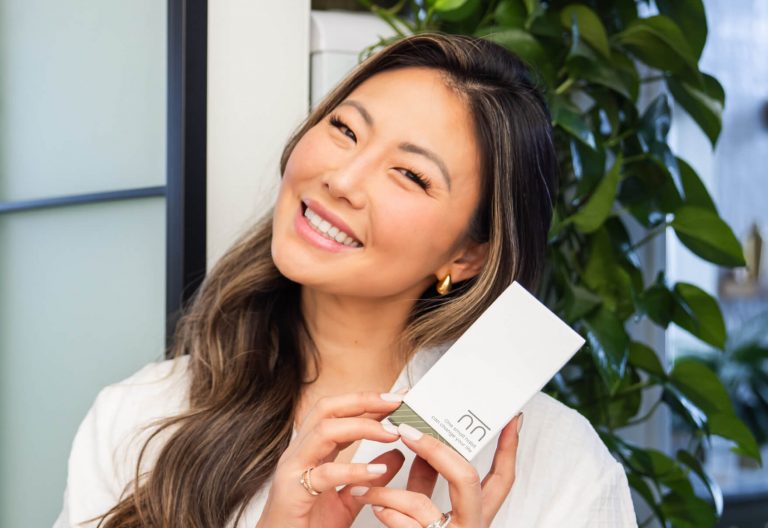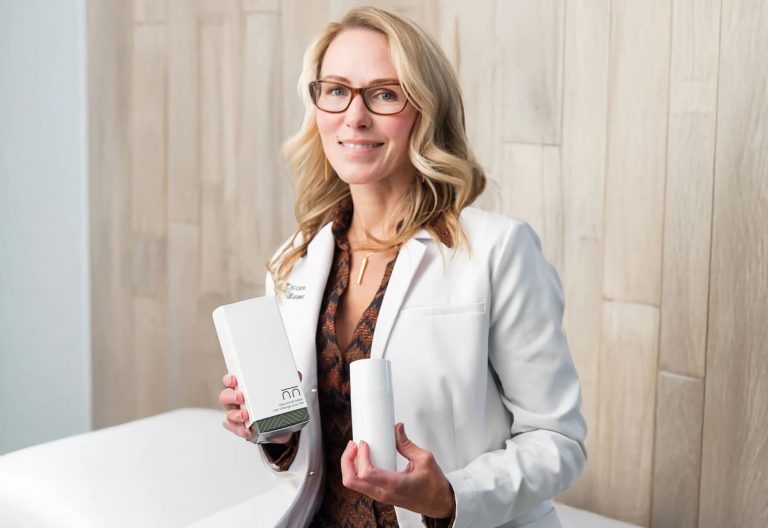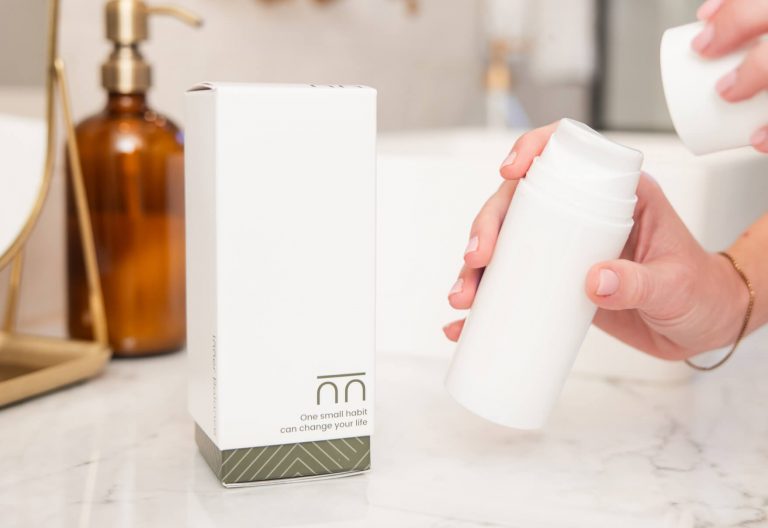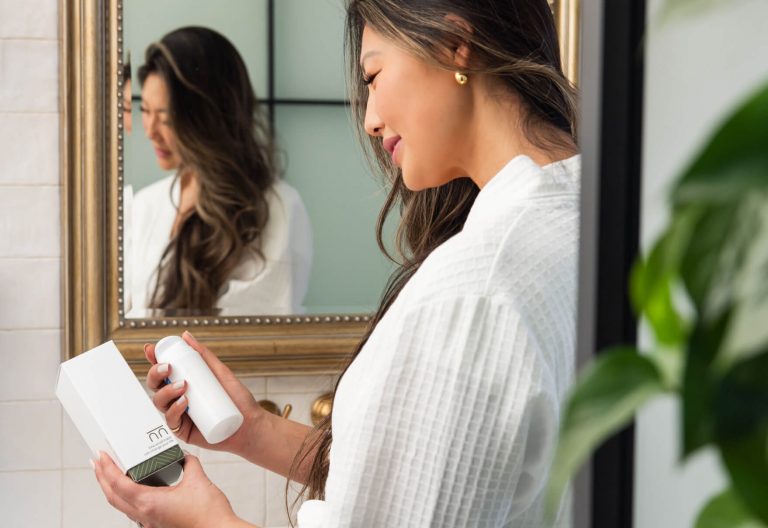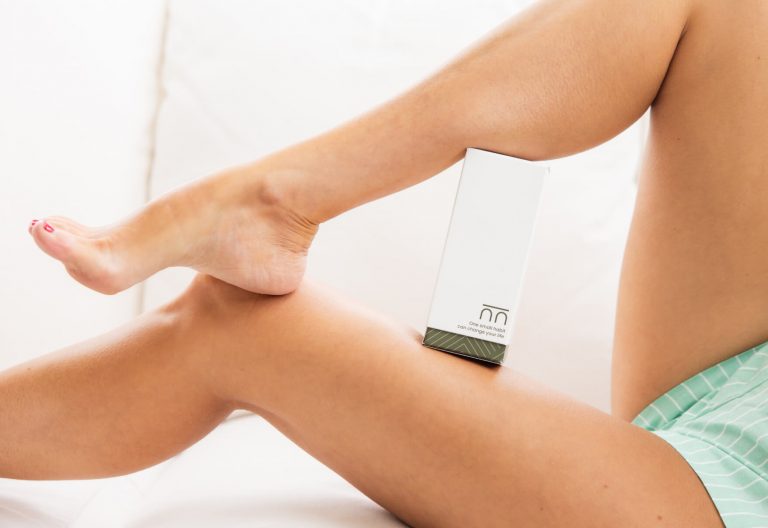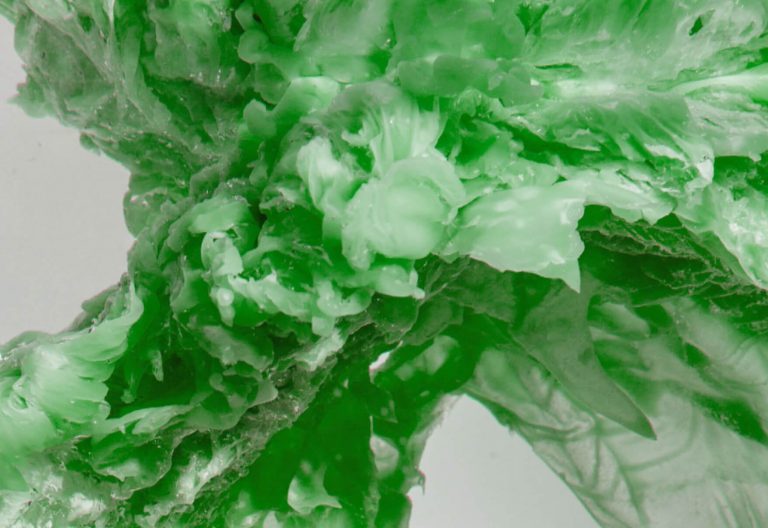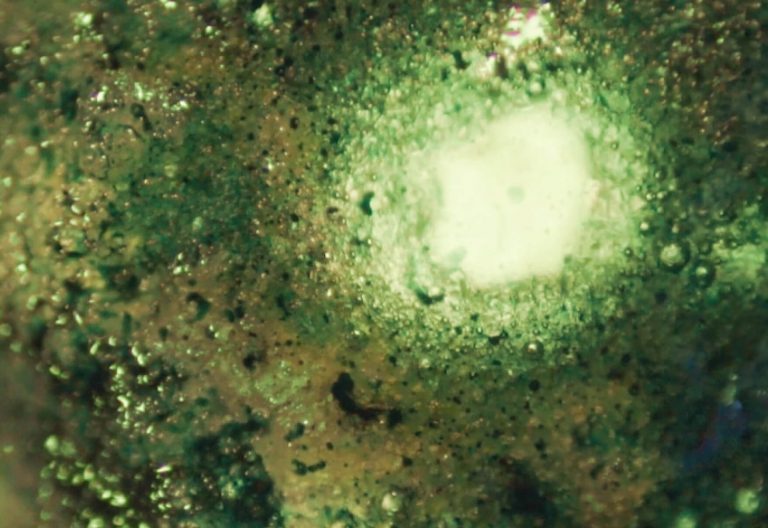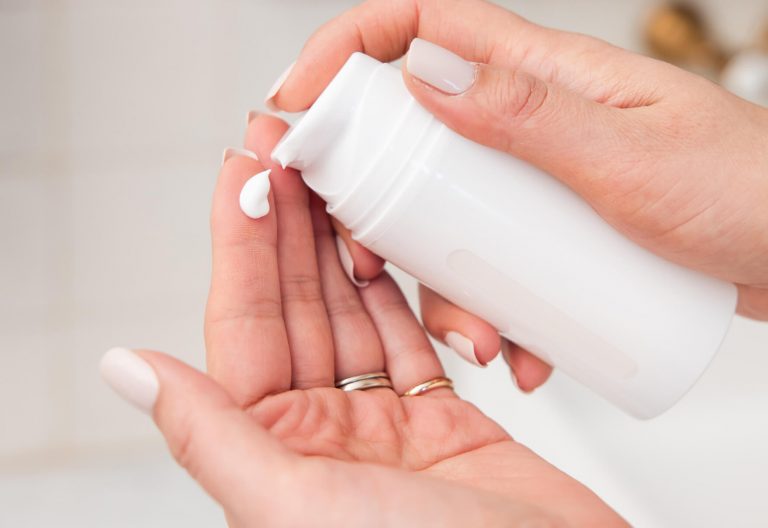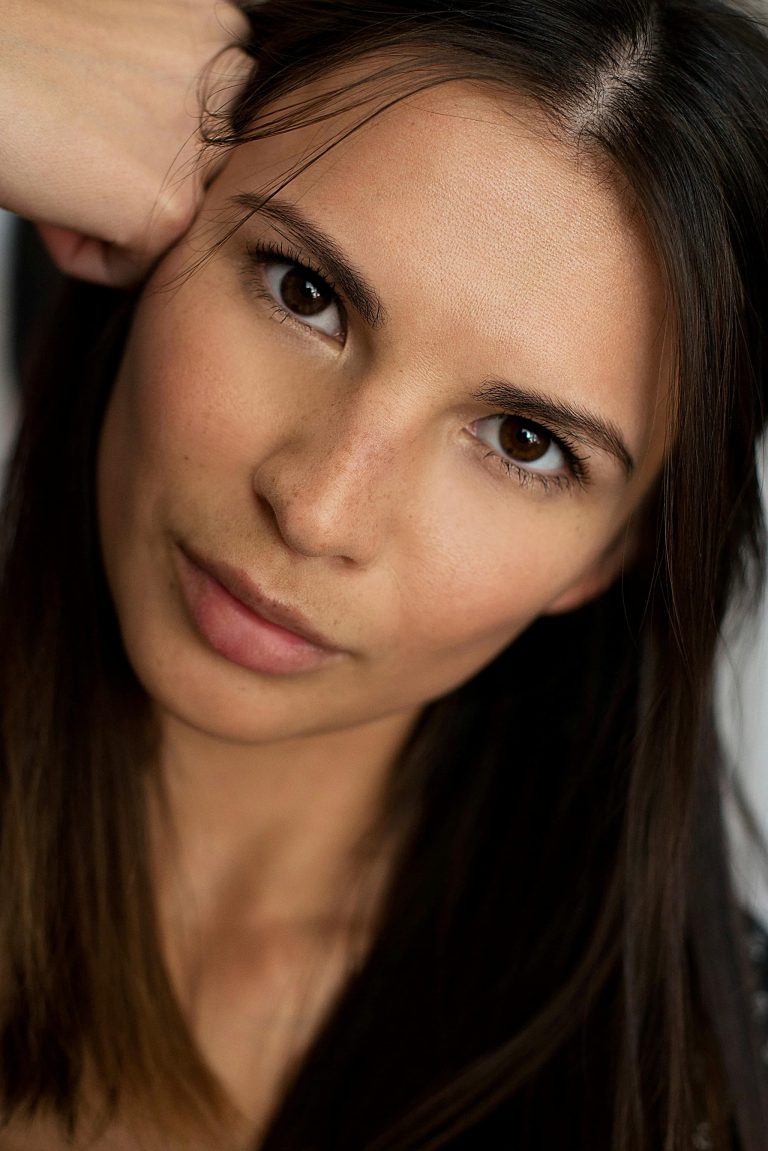The Medical Journal.
- ARTICLES
- RECIPES
- WRITTEN BY: Sarah Daccarett, MD
What if everything you’ve been told about stress and hormones is backwards? The common narrative says that chronic stress “steals” your progesterone, leading to hormonal imbalance. But what if it’s actually the lack of hormones—specifically estradiol and progesterone—that’s driving your stress response into overdrive?
- WRITTEN BY: Sarah Daccarett, MD
If you're in your 30s, 40s or 50s and starting to hear more about osteoporosis, you’re not alone—and you’re asking a smart question. One of the most common concerns I hear from women is: Does hormone replacement therapy (HRT) help prevent osteoporosis? The answer is important, especially during perimenopause and menopause when bone loss can accelerate rapidly.
- WRITTEN BY: Sarah Daccarett, MD
If you're finding extra strands on your pillow, thinning around your temples, or watching your once-thick ponytail shrink—you're not alone. Hair loss during perimenopause, menopause, postpartum, or other times hormones are low – is incredibly common, but that doesn’t make it any less distressing.
- WRITTEN BY: Sarah Daccarett, MD
We’re talking about the kind of fatigue that lingers no matter how early you go to bed, how many supplements you take, or how much coffee you drink. If you’re feeling exhausted during the day, mentally foggy, and emotionally drained, there’s a good chance this isn’t just stress or poor sleep.
- WRITTEN BY: Sarah Daccarett, MD
Menopause is a term we use to signify that the period has completely stopped for one year. So what is the problem with using this terminology? Most women can have all the symptoms of menopause, have very low levels of hormones and still have a period for decades before it stops!
- WRITTEN BY: Sarah Daccarett, MD
Hormone Replacement Therapy (HRT) has become a hot topic—and for good reason. As more women prioritize their long-term health, energy, and vitality, they’re looking for real, lasting solutions to the hormonal drops that can happen anytime in life and become especially pronounced in perimenopause and menopause.
- WRITTEN BY: Sarah Daccarett, MD
Thinking About Hormone Replacement Therapy But Not Sure Where to Start?
You’re not alone.
Every day, I talk to women who are frustrated, confused, or overwhelmed when it comes to hormone replacement therapy (HRT). They’ve Googled symptoms, tried a few creams, or herbs and maybe even bought something off Amazon—but nothing seems to work the way they’d hoped.
- WRITTEN BY: Sarah Daccarett, MD
If you’ve been asking yourself, “Will hormone replacement therapy help me lose weight?”—you’re not alone. For so many women, weight gain around perimenopause and menopause feels frustrating, confusing, and at times, completely out of their control.
- WRITTEN BY: Sarah Daccarett, MD
If you’ve been researching hormone replacement therapy (HRT), chances are you’ve come across the term bioidentical hormones more than once. Maybe your friends are on them. Or maybe you stumbled across them while trying to make sense of the symptoms that don’t feel “normal” for your age—fatigue, brain fog, mood swings, weight gain, disrupted sleep, heavy painful periods, or loss of libido.
- WRITTEN BY: Sarah Daccarett, MD
If you’ve been researching hormone replacement therapy (HRT), you might feel overwhelmed—like every article leads to more questions than answers. You’re not alone. Many women come to me after sifting through dozens of conflicting opinions, only to realize that what they really need is a provider who truly specializes in hormones, not just thinks they know, or dabbles in them, or thinks birth control is HRT.
- WRITTEN BY: Sarah Daccarett, MD
There’s a powerful cultural shift happening around hormone enrichment for women. What was once seen merely as a “treatment to get through menopause” is now being recognized for what it truly is: a foundational tool for long-term vitality. We now understand that the aging process accelerates as sex hormones decline—and that decline begins as early as our 30s.
- WRITTEN BY: Sarah Daccarett, MD
So, you’re considering Hormone Replacement Therapy (HRT). Maybe you’ve read about the benefits, or you’ve started experiencing symptoms like fatigue, brain fog, insomnia, weight gain, anxiety, irritability, or low libido and want to take control of your health. Maybe you are considering it because you have heard the anti-aging potential and you want to feel and look your best as you get older.
- WRITTEN BY: Sarah Daccarett, MD
Menopause is literally just one day! One day of your entire life—it's when the period stops. However, what about the 30 years before and after menopause?
- WRITTEN BY: Sarah Daccarett, MD
Question from a 40-Year-Old Woman: "Dr. Sarah, I feel like something is off, but my doctor says my labs are normal. I’m tired all the time, I can’t lose weight like I used to, I am so irritable with my husband and kids, I can't sleep and my cortisol is high. Could this be my hormones?
- WRITTEN BY: Sarah Daccarett, MD
Women are often told that they have to wait until their period stops (menopause) to start hormone replacement therapy. And when we hear about hormones dropping, we often associate it with menopause. However, most women start to experience symptoms in their 30s and 40s - long before their period stops.
- WRITTEN BY: Sarah Daccarett, MD
If you’ve landed here, you have likely already tried numerous solutions to hormone-related issues: supplements that didn't work, changing your diet, and exercising more. You might have even spent thousands of dollars and are not getting the results you want.
- WRITTEN BY: Sarah Daccarett, MD
You’ve probably heard about hormone replacement therapy (HRT). Maybe your best friend swears by it, or a coworker mentioned how it changed her life. Or perhaps you’ve been up late, scrolling through articles, looking for solutions to the brain fog, the weight gain, or the sleep that seems to elude you more often than not. If any of this sounds familiar, you’re not alone.
- WRITTEN BY: Sarah Daccarett, MD
If you’ve ever noticed changes in vaginal odor, you’re not alone. It’s a topic many women hesitate to discuss, yet it’s incredibly common—especially after the age of 30, when perimenopause hits. This gets progressively worse as women age - with its greatest impact during menopause.
- WRITTEN BY: Sarah Daccarett, MD
Aging is inevitable, but having our health decline while we age is optional. Bioidentical hormone replacement therapy (BHRT) is one of the most powerful tools available for women to maintain vitality, prevent chronic disease, and age more slowly. It isn’t just about living longer anymore - women already outlive men.
- WRITTEN BY: Sarah Daccarett, MD
For decades, progesterone was thought to be only necessary for pregnancy, leading to the widespread belief that it had little role outside of fertility and gestation. Many women who have had a hysterectomy are not prescribed progesterone under the assumption that they no longer need it.
- WRITTEN BY: Sarah Daccarett, MD
Progesterone begins to decline naturally after the age of 30 due to aging—this is purely biological and inevitable. Unlike other hormones that can be influenced by lifestyle factors, nothing can stop this decline—not lowering stress, not taking supplements, and not even high-protein diets.
- WRITTEN BY: Sarah Daccarett, MD
For years, women have been warned about the dangers of \"estrogen dominance,\" a term that has been widely misunderstood and misrepresented. Many assume that estrogen dominance means high estrogen levels, leading to weight gain, breast cancer, and other health issues. But what if I told you that estrogen dominance isn’t actually about high estrogen at all?
- WRITTEN BY: Sarah Daccarett, MD
As women transition through perimenopause and menopause, declining hormone levels can lead to a range of frustrating symptoms, including dry skin, hair thinning, mood changes, and fatigue. One of the most effective ways to restore hormonal balance and improve these symptoms is through estradiol therapy.
- WRITTEN BY: Sarah Daccarett, MD
Don’t wait until you have hot flashes, or your period to stop before you consider hormones as a cause of your symptoms. Women start to experience health problems when estrogen gets below 500 pg/mL.
- WRITTEN BY: Sarah Daccarett, MD
As we approach our fabulous 40s and beyond, our bodies go through some changes that can bring about a rollercoaster of symptoms.
- WRITTEN BY: Sarah Daccarett, MD
The world of injectables is vast — some are labeled and referred to as neuromodulators (Botox, Dysport, and Xeomin). In reality, a neuromodulator is a neurotoxin.
- WRITTEN BY: Sarah Daccarett, MD
Just because you are getting older doesn’t mean your sex life shouldn’t have to come to a screeching halt. As you approach 40, your reproductive cycle slows down and prepares to stop and your ovaries make less estrogen and progesterone. When this happens you may find it challenging to get aroused and excited about sex.
- WRITTEN BY: Sarah Daccarett, MD
When women complain of sexual dysfunction — they are prescribed anti-depressants, supplements, vaginal lubrications, or simply dismissed. Despite the evidence in the research literature that estrogen is a very effective therapy for sexual dysfunction for women.
- WRITTEN BY: Sarah Daccarett, MD
Lets talk about what gives skin that youthful, hydrated appearance — hyaluronic acid (HA). It attracts and retains moisture, contributing to the skin’s hydration, plumpness and elasticity. It helps maintain skin hydration by binding to water molecules.
- WRITTEN BY: Sarah Daccarett, MD
Metabolic health is more than just what the scale says — it means you are healthy and balanced on the inside. It is possible to reprogram and even reset your metabolic system and it doesn’t work to just restrict calories and exercise.
- WRITTEN BY: Sarah Daccarett, MD
Is there a stubborn muffin top that seems to have appeared out of nowhere since hitting menopause. Its frustrating right? Let’s take a moment to see why this is happening and why taking hormone replacement therapy won’t make it worse.
- WRITTEN BY: Sarah Daccarett, MD
Fibrocystic breast disease is a very common – it is when there are lumps, pain, and changes in breast tissue. It is non-cancerous, but it can still cause discomfort and anxiety and raise women’s concerns about the health of their breasts.
- WRITTEN BY: Sarah Daccarett, MD
Emotional well-being and mental health is just as important as any other aspect of health. However, women after 40 report higher rates of irritability, anxiety, depression and inability to concentrate.
- WRITTEN BY: Sarah Daccarett, MD
Attention Deficit Disorder (ADD) and can include hyperactivity (ADHD) is a form of neurodiversity represented by differences in neurotransmitter chemistries. These neurological variations are to be recognized and respected as we would any other human difference.
- WRITTEN BY: Sarah Daccarett, MD
What if everything you’ve been told about stress and hormones is backwards? The common narrative says that chronic stress “steals” your progesterone, leading to hormonal imbalance. But what if it’s actually the lack of hormones—specifically estradiol and progesterone—that’s driving your stress response into overdrive?
Discover Why Women Say It Changed Their Life.
Being healthy should be easy. Now it is.
A daily therapy that not only feels like self-care, it feels like the smart thing to do. That’s why we call it “smart self-care.” Make the decision to start and you make your health and future a priority. Give yourself the fuel you need to give the best of yourself to the world. You are worth it.









